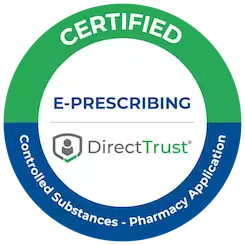As the population ages, the demand for assisted living facilities increases. These facilities offer a safe and comfortable environment for seniors to live, with the added benefit of professional assistance for daily tasks and medication management. One of the primary reasons seniors move to assisted living is efficient medication management.
In the United States, 1.3 million seniors are injured by medication every year, and 200,000 are hospitalized due to harmful drug reactions. Therefore, it is crucial for assisted living facilities to implement effective medication management strategies to ensure the safety and well-being of their residents. This article will outline key strategies for enhancing medication management in assisted living facilities.
1. Collaborate with Expert Pharmacy Partners
1.1 Utilize Experts for Medication Reviews
Many seniors arrive at assisted living communities with a medication profile that includes prescriptions from multiple physicians in different practice areas. Partnering with a pharmacy that specializes in geriatric care, such as Pharmcare USA, can help ensure residents’ medication regimens are safe and effective. Expert pharmacists should perform medication reviews upon resident arrival and when a new medication is added, identify potential drug interactions, recommend discontinuing harmful medications, review the history of “as-needed” medications, and examine lab results to assess the impact of the medication regimen on the resident’s health.
1.2 One Pharmacy Partner for Each Community
Having multiple pharmacies within a single assisted living community can lead to medication errors, reorder issues, difficulty implementing technology like electronic medication administration records (eMARs), staff stress, and unnecessary labor costs. To minimize these risks, it is essential to establish a relationship with a single preferred pharmacy that can support the community’s medication management needs. A pharmacy like Pharmcare USA, which specializes in assisted living and provides dedicated customer service and comprehensive resources, can help streamline the medication management process for residents and staff.
2. Adopt Advanced Pharmacy Software and Technology
2.1 Electronic Health Records and eMARs
The adoption of advanced pharmacy software like Electronic Health Records (EHRs) and eMARs can significantly reduce medication errors, keeping residents safer and eliminating community risks. When the system interfaces directly with a pharmacy provider, assisted living communities can improve accuracy through e-prescribing, provide caregivers with access to patient data anytime, simplify medication ordering, and save costs by increasing staff efficiency during medication passes. It is essential to backup systems and have disaster recovery plans in place to ensure the smooth operation of these technologies.
2.2 Automated Compliance Medication Packaging and Barcoding
Automated compliance medication packaging reduces errors and simplifies dispensing, while barcoding technology guarantees medications are delivered to the right resident at the right time. Implementing these technologies in assisted living facilities ensures that the medication administration process is efficient, accurate, and safe for residents.
3. Provide Ongoing Staff Education and Support
3.1 Regular Training Sessions and Continuing Education
Rapidly changing technologies, staff turnover, regulations, and care techniques often leave assisted living staff struggling to keep up with industry shifts while balancing daily job responsibilities. To stay current, pharmacy providers like Pharmcare USA can hold regular training sessions and continuing education courses for assisted living staff. Maintaining open communication with community leaders can help uncover issues staff members are facing and tailor educational programs to focus on these areas.
3.2 Encourage Staff Confidence and Satisfaction
Well-educated staff members are more effective and confident in their positions and more likely to be satisfied in their jobs. This leads to less turnover and increased resident safety. Providing ongoing education and support to assisted living staff is crucial for maintaining a high level of care and medication management within the community.
4. Monitor and Evaluate Medication Management Practices
4.1 Regular Audits and Reviews
Assisted living communities should regularly audit and review medication management practices to identify areas for improvement and ensure compliance with regulations. This includes evaluating staff adherence to medication administration protocols, monitoring the accuracy and efficiency of medication dispensing, and assessing the effectiveness of pharmacy software and technology.
4.2 Quality Improvement Initiatives
Based on the results of audits and reviews, assisted living facilities should implement quality improvement initiatives to address identified issues and enhance medication management practices. This may involve refining staff training programs, updating pharmacy software, or revising medication administration protocols.
5. Ensure Clear Communication and Collaboration
5.1 Communication between Staff, Residents, and Families
Clear communication between assisted living staff, residents, and their families is essential for effective medication management. Staff should provide regular updates on residents’ medication regimens, discuss any changes or concerns with residents and their families, and be available to answer questions or provide assistance as needed.
5.2 Collaboration with Pharmacy Partners
Assisted living communities should maintain open and ongoing communication with their pharmacy partners, such as Pharmcare USA, to ensure seamless coordination of medication management services. This includes discussing any medication-related issues or concerns, exploring opportunities for further collaboration or support, and staying updated on industry trends and best practices.
6. Implement Medication Storage and Security Measures
6.1 Secure and Organized Storage
Proper medication storage is crucial for ensuring the safety and effectiveness of medications in assisted living facilities. Medications should be stored securely and organized in a manner that prevents errors, such as mixing up medications or administering expired drugs. This may involve using locked cabinets or storage rooms, organizing medications by resident or medication type, and regularly checking expiration dates.
6.2 Access Control and Monitoring
Access to medication storage areas should be limited to authorized staff members, and facilities should implement monitoring systems to track medication access and dispensing. This may include using keycard systems, video surveillance, or pharmacy software that logs staff access to medication storage and dispensing records.
7. Develop and Implement Medication Administration Protocols
7.1 Standardized Procedures and Guidelines
Assisted living facilities should develop and implement standardized procedures and guidelines for medication administration. These protocols should outline the steps staff members must follow when administering medications, including verifying the resident’s identity, checking medication details, and documenting the administration. Standardized protocols help ensure consistent and accurate medication administration across the community.
7.2 Staff Training and Competency Assessment
Staff members responsible for medication administration should receive thorough training on the facility’s medication administration protocols and be regularly assessed for competency. This helps ensure that staff members are knowledgeable, confident, and capable of safely administering medications to residents.
8. Promote Medication Adherence and Compliance
8.1 Resident Education and Support
Assisted living staff should work with residents and their families to promote medication adherence and compliance. This may involve providing education on the importance of taking medications as prescribed, offering support and encouragement, and addressing any barriers to adherence, such as side effects or difficulty swallowing pills.
8.2 Medication Reminders and Monitoring
Staff members can help support residents’ medication adherence by providing regular reminders for medication administration and monitoring residents for any signs of non-compliance or medication-related issues. This may involve using pharmacy software or other tools to track residents’ medication administration records and identify any patterns of non-compliance.
9. Address Medication-Related Issues and Concerns
9.1 Identify and Resolve Medication Errors
Assisted living facilities should have procedures in place for identifying, reporting, and resolving medication errors. This includes conducting root cause analyses to determine the factors contributing to errors, implementing corrective actions to prevent future errors, and providing support and education to staff members involved in errors.
9.2 Manage Adverse Drug Reactions and Interactions
Staff members should be trained to recognize and manage adverse drug reactions and interactions in residents. This includes monitoring residents for signs of drug-related issues, consulting with pharmacy partners or healthcare providers as needed, and adjusting medication regimens as appropriate to minimize risks and ensure resident safety.
10. Continuously Evaluate and Improve Medication Management Practices
10.1 Ongoing Assessment and Feedback
Assisted living facilities should continuously assess and evaluate their medication management practices to identify opportunities for improvement and ensure the highest level of care for residents. This may involve soliciting feedback from staff, residents, and families, conducting regular audits and reviews of medication management processes, and staying informed about industry trends and best practices.
10.2 Implementing Best Practices and Innovations
As new best practices and innovations emerge in the field of medication management, assisted living facilities should strive to adopt these advances to enhance their services and ensure the safety and well-being of their residents. This may involve adopting new pharmacy software, implementing updated medication administration protocols, or exploring innovative medication storage and dispensing solutions.
By implementing these strategies, assisted living facilities can enhance their medication management practices and provide the highest level of care and safety for their residents. Partnering with a pharmacy provider like Pharmcare USA, which offers medication management solutions, pharmacy services, medication delivery, and consulting services, can further support assisted living communities in achieving their medication management goals.




